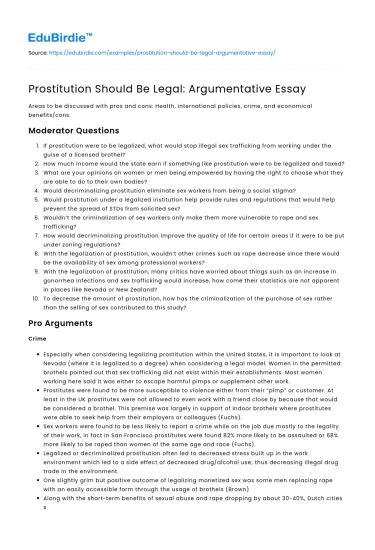Prostitution Should Be Legal: Argumentative Essay
|
Topics:
|
Prostitution
|
|---|---|
Words: |
2393 |
Pages:
|
5
This essay sample was donated by a student to help the academic community. Papers provided by EduBirdie writers usually outdo students' samples.
|
Cite this essay
Download






 Stuck on your essay?
Stuck on your essay?

